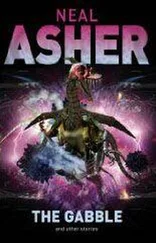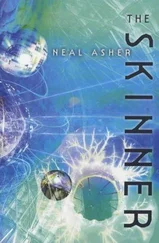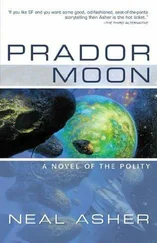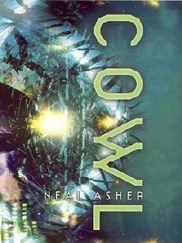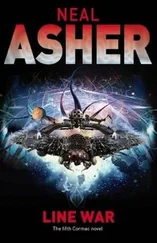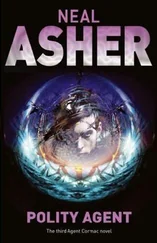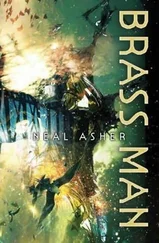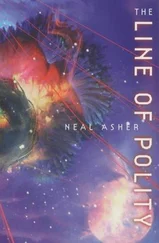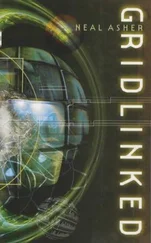Neal Asher - Zero Point (Owner Trilogy 2)
Здесь есть возможность читать онлайн «Neal Asher - Zero Point (Owner Trilogy 2)» весь текст электронной книги совершенно бесплатно (целиком полную версию без сокращений). В некоторых случаях можно слушать аудио, скачать через торрент в формате fb2 и присутствует краткое содержание. Жанр: Старинная литература, на английском языке. Описание произведения, (предисловие) а так же отзывы посетителей доступны на портале библиотеки ЛибКат.
- Название:Zero Point (Owner Trilogy 2)
- Автор:
- Жанр:
- Год:неизвестен
- ISBN:нет данных
- Рейтинг книги:3 / 5. Голосов: 1
-
Избранное:Добавить в избранное
- Отзывы:
-
Ваша оценка:
- 60
- 1
- 2
- 3
- 4
- 5
Zero Point (Owner Trilogy 2): краткое содержание, описание и аннотация
Предлагаем к чтению аннотацию, описание, краткое содержание или предисловие (зависит от того, что написал сам автор книги «Zero Point (Owner Trilogy 2)»). Если вы не нашли необходимую информацию о книге — напишите в комментариях, мы постараемся отыскать её.
Zero Point (Owner Trilogy 2) — читать онлайн бесплатно полную книгу (весь текст) целиком
Ниже представлен текст книги, разбитый по страницам. Система сохранения места последней прочитанной страницы, позволяет с удобством читать онлайн бесплатно книгу «Zero Point (Owner Trilogy 2)», без необходимости каждый раз заново искать на чём Вы остановились. Поставьте закладку, и сможете в любой момент перейти на страницу, на которой закончили чтение.
Интервал:
Закладка:
Serene closed down the feed from the model, did a brief search and opened up some files she had been studying a few months back. The Alexes were an interesting experiment, undoubtedly. Absolute obedience and belief could be inculcated to deep levels – that was evident – but the whole operation was very labour intensive. She needed something better than that, something longer lasting. And in the end, as far as life forms were concerned, that came down to one thing: the immortal genes.
Another search began to render useful results. Telomere repair and extension and other genetic modifications resulted in a limited prolongation of life, but the reverse applied too. Those who had been seeking out how to make people live longer had, in the process, unearthed how very easy it would be, with some small genetic modifications, also to shorten human lives. This idea had its appeal, but Serene could see problems. Limiting the span of people’s lives could result in a loss of useful expertise. Quite obviously you did not want people like Calder dying by the early age of, say, forty. Also, limiting lifespan would not slow down breeding, which primarily needed to be controlled. So what was the answer?
Serene sat back and glanced at the empty bottle of champagne next to her, wondering if now was the best time to consider such things. Next, she turned her gaze up towards the light tubes in the ceiling. No, the sooner she began grappling with these problems the better, and she was starting to get some sense of the shape of a solution.
Truncation of lifespan and control of fertility were essential. The science of eugenics was the answer, and the way of applying that science had been staring her in the face. Wasn’t it obvious that the best way of controlling the human race was precisely the method she had already used? She could spread a plague.
Viral recombination of DNA was a proven science, with a history nearly a century long. It should be possible to manufacture a virus capable of modifying DNA so that those infected would have only a short lifespan and would die quickly at the end of it, without senescence, maybe at some convenient age, say at forty or fifty. Perhaps the same virus, or another one, could be made to render everyone thus infected infertile, but in such a way that turning fertility back on would just be a matter of administering drugs. That solution seemed best: the actual ability to have children being state controlled.
As far as expertise was concerned, she could ensure some meritocratic immunization programme, but only against the life-shortening aspect of the modification. Those demonstrating brains and ability would be allowed to live long lives, but their ability to breed would still be utterly controlled. This would result in humanity diverging into two different strands, but even that would not be a permanent state of affairs. As technology continued to advance, and as robots became more capable and more expert computer systems emerged, there would come a point when that shorter-lived version of humanity would no longer be needed.
It would, she realized, work perfectly. Therefore ordering the future lay completely within her grasp. The knowledge made her feel almost euphoric. However, the good feeling quickly passed as she realized that this was all merely a distraction from her immediate concern, which centred on events millions of kilometres away.
Argus
Feeling utterly cold, Saul watched through many sensors as the attackers worked their way down through Tech Central, blowing out the bulkhead doors that had closed to prevent atmosphere escaping. While this was occurring he considered the work of one of Hannah’s lab assistants, James Allison. For times when this man wasn’t helping her, she had provided him with a research project of his own. She had wanted him to do a comprehensive analysis of the Galahad biochips inside ID implants.
Allison had not been enthusiastic about that at first but, as with all good researchers, he was methodical and precise and soon did become fascinated with the device he was studying. His first report to Hannah concerned the cybernetic virus, shortly followed by the electro-templating method used to produce it from the recipient’s own venous system. He then delved deeper into the chip, revealing how its genocidal purpose was concealed within its professed aim of ensuring that no one but the original recipient of an implant could use it. It was interesting to note that when those involved in the implant black market shut down the chip’s ostensibly prime process of identification, the chip’s real purpose remained untouched.
Allison then detailed for her how the chip was activated. When a microscopic radio receiver within it detected the code of the implant, on the right coded frequency, with the addition of two zeros, it began its work. It was all quite prosaic. Galahad had simply added those two zeros to the implant codes of every zero-asset citizen on Earth, and killed them. Thereafter she had become more selective, still killing at will with two extra digits.
Useful information, if you knew the ID codes of your enemy.
The troops were now nearing the lowest floor, so Saul snapped out of his introspection and set all the robots in motion. The enemy spiderguns had to be dealt with first, because they were the most dangerous. Two construction robots threw themselves at the first spidergun from their place of hiding. It immediately opened fire on them both but, with its firing evenly divided between them, it could not deliver enough of a fusillade to halt their momentum. The two construction robots were almost completely wrecked under fire, but crashed into the spidergun and tangled themselves in among its limbs. Also shuddering under fire, the next two were able to reach it while still functional, if marginally so. They then set their diamond saws running, and in a businesslike manner began hacking it to pieces even while it continued to blow away pieces of their bodies. Other construction robots slammed into the fray until the scene resembled something in a wildlife documentary: ants swarming over a spider and tearing it apart. Eventually the surviving construction robots propelled themselves away, leaving nothing but pieces of the spidergun amid their wrecked fellows.
A similar scenario played out with the second gun, but this time enemy troops were involved, even more so when further robots came out of hiding to attack them. At once, Saul was reminded of when he had first used robots on this station, instructing them to use their integral toolkits against human bodies. Diamond saws sliced through limbs and torsos; drills punched neat, evenly spaced patterns into chests; spacesuited figures shuddered under welding currents; detached heads tumbled; blood beaded the air and splashed against walls. With the spidergun down, the action ceased to be a battle and rapidly turned into a slaughter.
‘They’re nearly done,’ said Saul. ‘Let’s get moving.’
Even as he led the way in, Saul watched survivors fleeing along corridors, only to be rapidly brought down and dismembered. The machines were bloody and remorseless: efficient killers. He felt no sympathy for those dying, for it was they who had attacked and they were now paying the price. Upon checking, he saw that two construction robots were carting ten cleanly killed corpses up to the top floor. Surveying that same floor through the computer control system, he found only one area not yet decompressed: it was a surgical unit. This was probably because the troops that had searched it could see, through the glass viewing wall, that no one was in hiding inside. He led the way there now.
The corridors were littered with corpses, their blood steaming in vacuum.
‘Hell of a mess,’ Langstrom observed, kicking a severed head further down the corridor.
Читать дальшеИнтервал:
Закладка:
Похожие книги на «Zero Point (Owner Trilogy 2)»
Представляем Вашему вниманию похожие книги на «Zero Point (Owner Trilogy 2)» списком для выбора. Мы отобрали схожую по названию и смыслу литературу в надежде предоставить читателям больше вариантов отыскать новые, интересные, ещё непрочитанные произведения.
Обсуждение, отзывы о книге «Zero Point (Owner Trilogy 2)» и просто собственные мнения читателей. Оставьте ваши комментарии, напишите, что Вы думаете о произведении, его смысле или главных героях. Укажите что конкретно понравилось, а что нет, и почему Вы так считаете.


